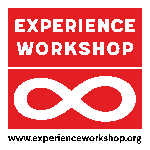Új publikáció a Southeast Asian Journal of STEM Education-ben
Introducing Golden Section in the Mathematics Class to Develop Critical Thinking from the STEAM Perspective (szabadon letölthető)
Southeast Asian Journal of STEM Education, Vol. 2 No. 1 Jan-Apr 2021
Szerzők: Thierry Dana-Picard (Jerusalem College of Technology, Jerusalem, Israel), Sara Hershkovitz (Center for Educational Technology, Tel Aviv, Israel), Zsolt Lavicza (Johannes Kepler University, Linz, Austria), és Kristof Fenyvesi (University of Jyväskylä, Jyväskylä, Finland)

Abstract
The Golden Section is a mathematical concept that is one of the most famous examples of connections between mathematics and the arts. Despite its widespread references in various areas of nature, art, architecture, literature, music, or aesthetics, discussions of the golden ratio often turn out to be false or misleading. Most of the incorrect statements are based on approximations or stem from the lack of checking the facts, making scientific mistakes in verifying the original scientific, historical, cultural context, or performing arbitrary operations in the measurements. This article offers geometric data and measurements, which allow the students to explore the golden ratio in various contexts through problem-solving activities. At the same time, we encourage students and their teachers to initiate critical discussions based on multidisciplinary research in the areas of STEAM about their findings. Such research-based critical discussion can help to discover the context of their results from several other perspectives in addition to mathematics. It can also reflect both the cultural and scientific validity of the – otherwise mathematically correct – computations, as an essential expectation towards mathematics applied in a cultural or social context. For some of the topics described in this paper, we provide GeoGebra applets, which can let the reader explore the phenomena, and some pedagogical usage in classroom may yield examples for various populations of students. The topic is valuable in STEAM Education, with activities relying on European, Southeast Asian and Middle Eastern perspectives.
